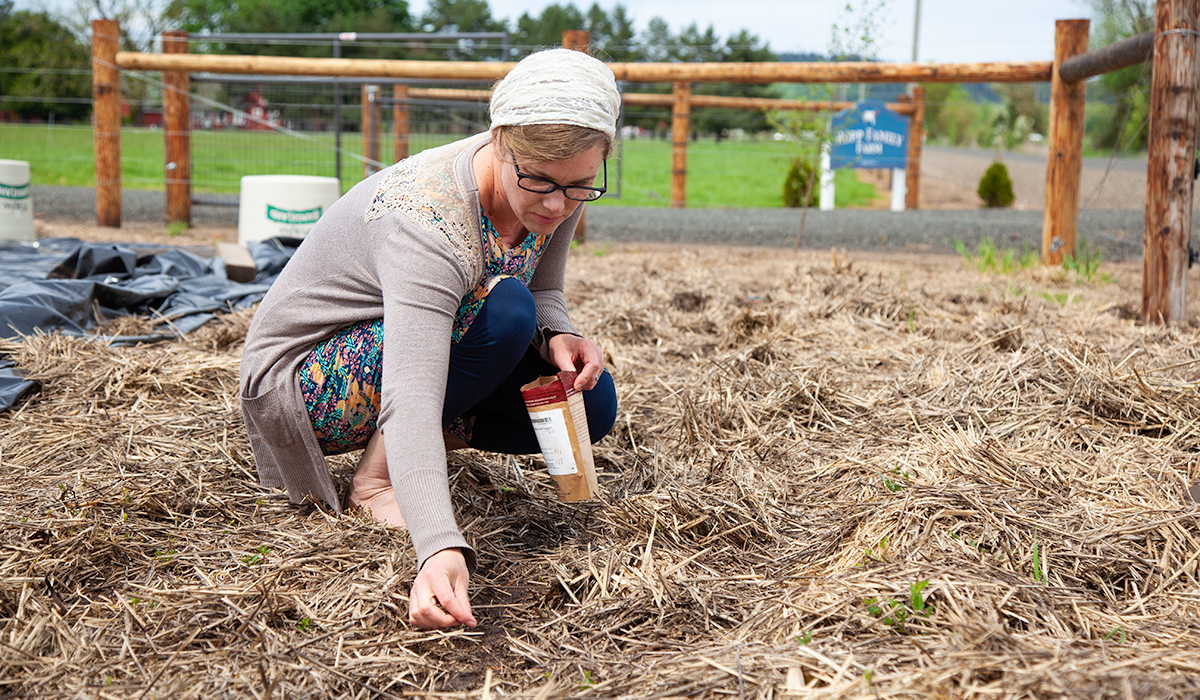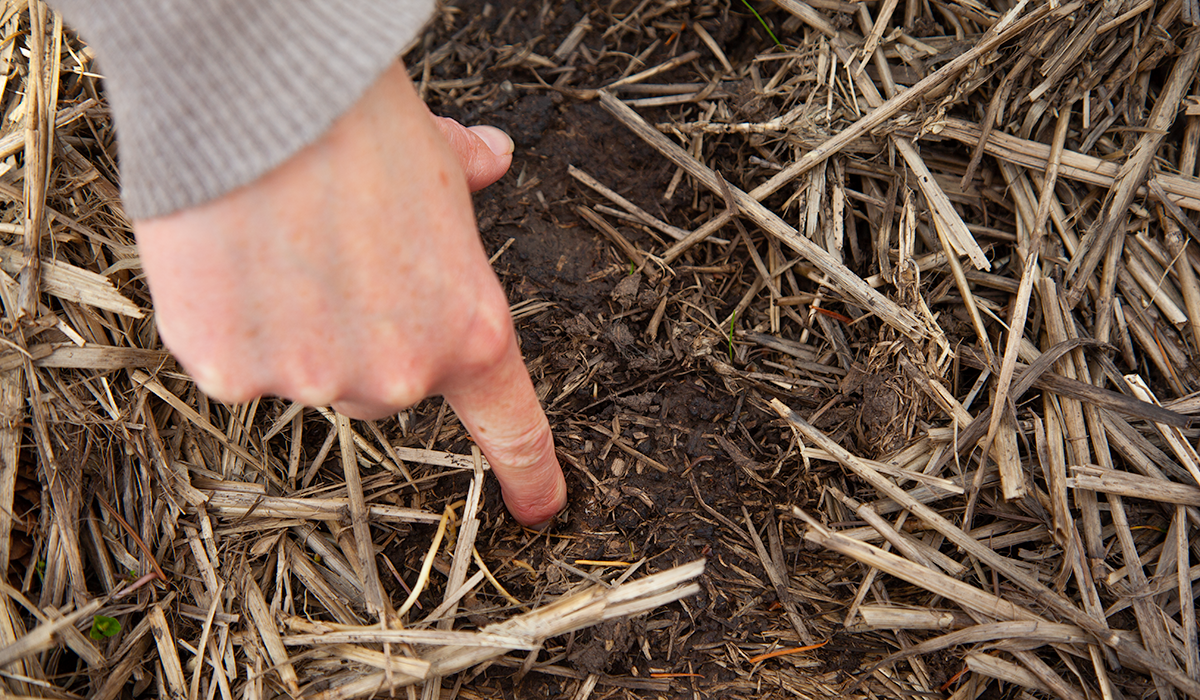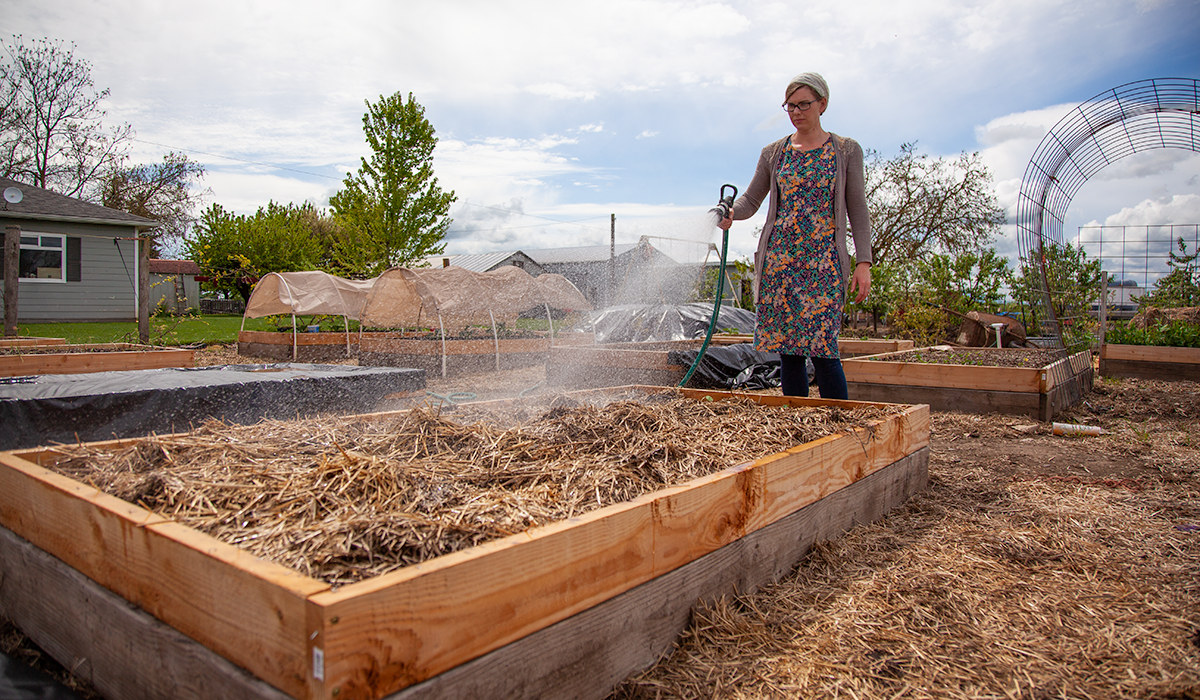
Gardening with Greta: May
As we move into late spring and the sunshine continues to bring the land to life, now is the perfect time to get even more of your garden ready for the months ahead. Greta and her gardening crew are here to show you what to plant in the coming weeks and how to get the most from your patch of paradise.
Check Your Soil Temperature
Depending on where you live in the Northwest, you’ll want to wait to plant certain crops until your soil reaches 60-65º F. These include sweet corn, bush beans, squash, and pumpkins. To check your soil temperature, use a metal thermometer and push it 4-inches into the ground. Check the temperature a few days in a row to be sure temperatures remain consistent.
Greta tested out putting plastic down back in January on top of the straw mulch to see if she could warm the ground up sooner. This seems to have worked as there was a difference in soil temperature of 5 degrees between what had only been mulched and what had been mulched and also covered in black plastic.
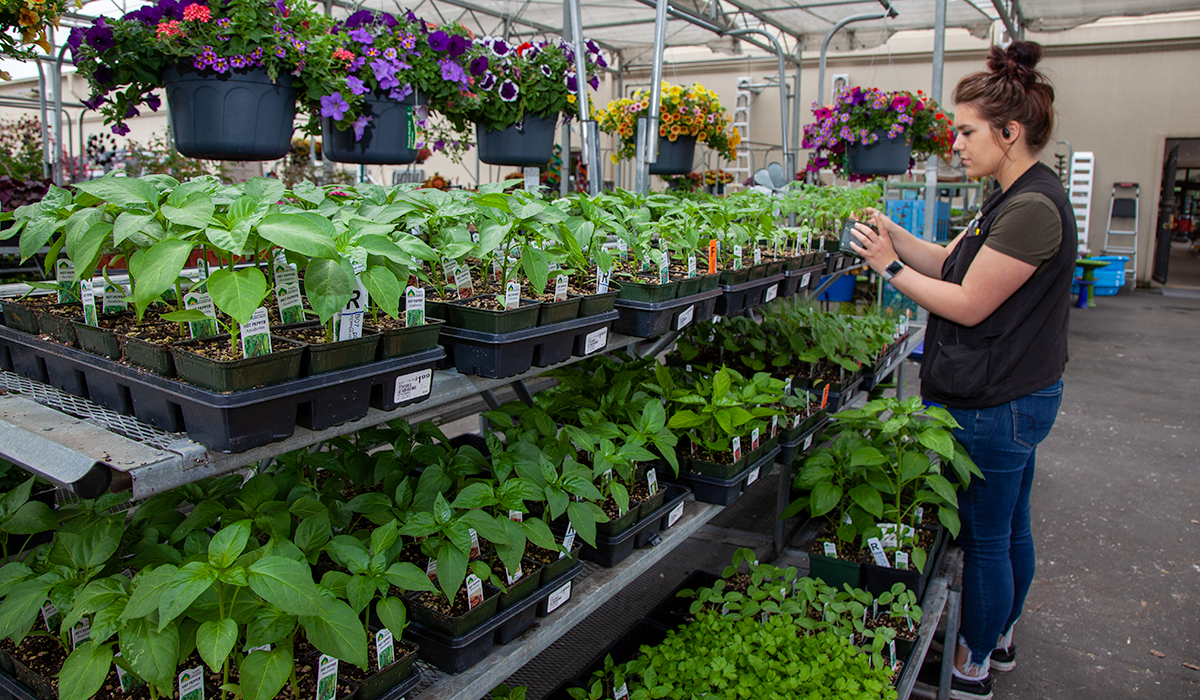
Time to Plant Your Starts
If you started seeds a month or so back, now is the time to plant them. You can also pick up your starts at Coastal. Greta is planting tomatoes, peppers, ambrosia, and watermelon.
Consult the planting chart from Oregon State University or their full gardening guide here for information about planting starts in your region. You can also consult pages 11 and 12 of the Washington State University Extension’s Home Vegetable Gardening guide.
Protect Your Starts with Diatomaceous Earth
Greta uses this miraculous product around her starts to protect them from bugs, slugs, snails, and other critters. You’ll find bags of diatomaceous earth at Coastal in the gardening department.
Companions Make Healthy Harvests
Looking for a way to keep bad bugs out of your garden and encourage good ones to visit? Companion plants can make a huge difference. Greta has planted the following with their companion plants:
Tomatoes with Basil (or marigolds): This coupling helps repel flies and mosquitos and produce a better yield of tomatoes.
Carrots with Onions. The onions repel aphids and other pests.
Peppers with Basil: While the basil will keep bad bugs away, it can also enhance the flavor of the pepper slightly.
Beans with Marigolds: Bean beetles can be a huge problem if you don’t plant some marigolds nearby.
Cucumbers with Marigolds: Repels beetles and aphids.
Greta has also planted some Zinnias to help ward off cucumber beetles and tomato worms, as well as attract hummingbirds, which eat all kinds of garden bugs. Borage (starflower) is another wonderful companion plant that repels cabbage worms and attracts bees.
Planting Corn in a No-dig Garden
Greta put straw down last fall as part of the no-till garden. Check out our article Trying a No-Till Garden for advice on how to do it on your own land. With corn, she just plants in the ground below the straw, covers it all up, and lets it grow. The straw will keep most weeds from getting through while allowing the corn to make it out into the sun.
Coastal Tip: When planting in a no-dig garden, just pull apart the straw or mulch to make rows and push the seeds right down into the soil at the proper depth.
Give No-Dig Potatoes a Try
Last year, Greta tried growing no-dig potatoes and it worked great. To grow your own, loosen up the soil in an area and add a good layer of mulch. Then, plant your potatoes by placing them on top of the mulch. Be sure to space them appropriately. For instance, most varieties require 14-16 inches of room to grow. Then, cover them with compost. Greta is using 6-inches of straw.
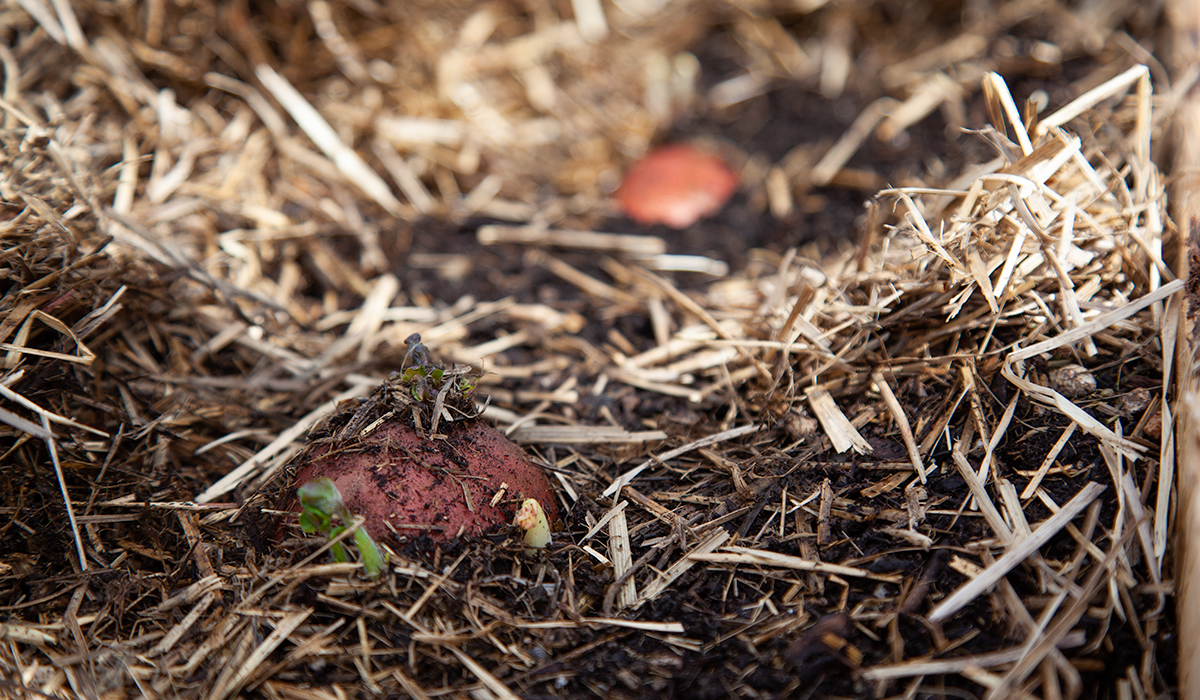
Be sure to water yours well. Since they’re not in the ground, they can dry out easily. Add straw as needed. To check on their progress and harvest, just move the straw out of the way. If they need more time, just put the straw or compost back over them.

Get Your Gardening Supplies at Coastal
Your Northwest owned and operated Coastal has all the gardening gear you need for a beautiful yard and bounty. That includes seeds, starts, fertilizer, tools, gloves, diatomaceous earth, as well as fencing, hoses, and sprinklers. Have a gardening question? Our pros know the region and what grows best in your neck of the woods.

